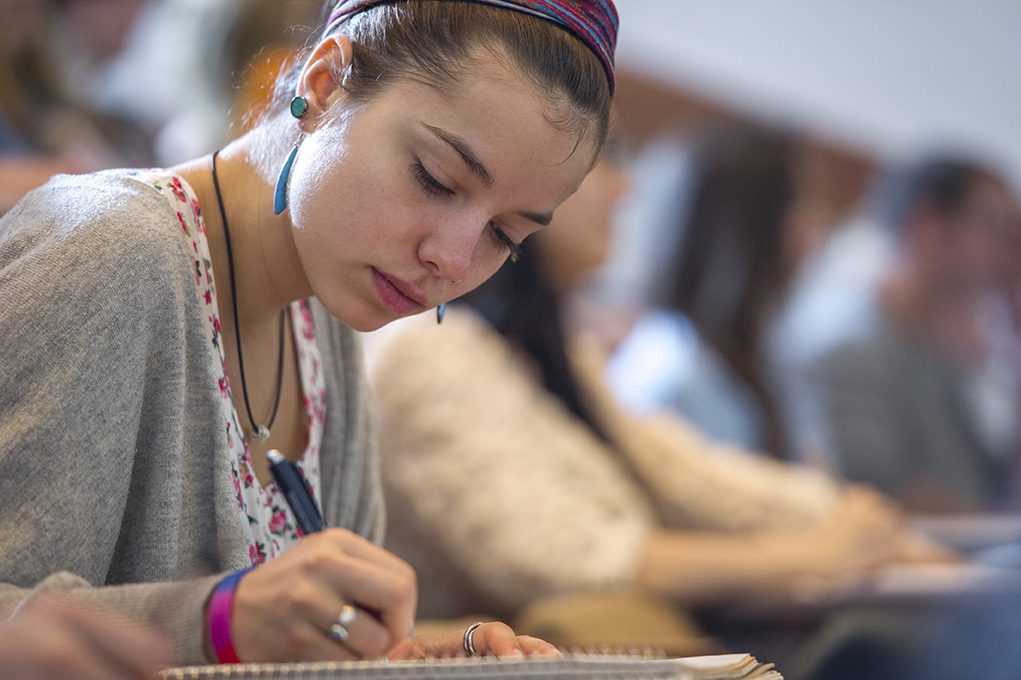Comparative Languages and Linguistics
As a comparative languages and linguistics major, you’ll select two of the languages that we teach and critically examine their structure, functions and corresponding cultures in both language-specific courses as well as linguistics courses that are taught in English. Your required off-campus study experience will ensure that your language study is grounded in a specific community and will help you develop lifelong personal and professional connections.

Start your adventure
Sign up for more information about Earlham College.
Top fields for recent graduates include K-12 education, higher education, journalism and more. Alums of the CLL program are also teaching English around the world, working in publishing and doing graduate work in international studies.
What makes this program great?
Earlham’s CLL major is one of few programs at the undergraduate level in the country that combines linguistic analysis with the study of more than one language. Our comparative language faculty members encourage your passion for linguistic knowledge while guiding your inquiry into the nature of language and its functions. CLL majors excel in careers in law, social service, translation, education, speech therapy, nonprofit organizations, international development and international business.
The world at Earlham
Given Earlham’s globally diverse community, you may not have to leave campus in order to converse with native speakers in the languages you study.
Choose your languages
At Earlham you can study French, Japanese, Latin and Spanish.

Our faculty
CLL faculty members are not only from language programs (i.e., French, Japanese, Latin and Spanish) but also from English, philosophy and TESOL. CLL faculty encourage your passion for linguistic knowledge while guiding your inquiry into the nature of language and its functions.
A foundation for critical thinking
The comparative languages and linguistics program prepares you to enter our global economy as an effective communicator with an understanding of different cultures and languages.
Recent graduates have found jobs in education, publishing, technical writing and journalism, among other areas.
Recent students in this program have interned at the Nibutani Ainu Culture Museum in Japan, Stepping Stones China and Space Media Japan, among other places.
By studying multiple languages, you will better understand the world and how language interacts with the way we think, learn and live.
If you believe that multilingualism is a necessity and are fascinated by the implications that the systematic nature of language can have on communicating in a diverse world, this program will be a great fit for you.